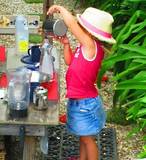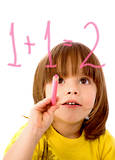Shop
02222
https://www.under5s.co.nz/shop/Hot+Topics+Articles/Child+Development/Helping+young+kids+to+manage+their+anger.html
Helping young kids to manage their anger
|
Many things can cause young kids to become mad and start to scream and shout. However it’s important as parents and caregivers to teach toddlers and preschoolers how to manage their anger so that it doesn’t become self-destructive.
|
You might also be interested in ...
Early brain development & learning
Early childhood experiences impact and determine how the brain develops. Find out how we can help to stimulate our children’s early brain development and learning, and help them reach their full potential.
Learning for life
As parents we have dreams for our children. We hope that they will grow into happy healthy adults with a sense of purpose in life. With new technology making rapid advances in how people work and live, their place in the world is changing very quickly. How do we as parents and teachers prepare our children for a world that is unknown to us?
join usJoin us on social media for all our latest news. |
sign upSign up and receive our latest newsletters. |
|







However it’s important as parents and caregivers to teach toddlers and preschoolers how to manage their anger so that it doesn’t become self-destructive.
We need to help them realise that they will never get what they want by shouting and getting mad, but at the same time teach them that it’s not completely wrong to feel angry either.
Sometimes in life it is reasonable and important to feel angry and to express your true feelings.
Understanding why toddlers & preschoolers get mad
Firstly try to understand what it is that’s causing your toddler or preschooler to act out.
When they’re young, toddlers and preschoolers can’t always explain why they’re getting angry, but some of the common reasons for screaming and shouting include:
Learn to manage your own anger
It’s not just about your toddler or preschooler, look at how you’re handling the situation too.
Your toddler or preschooler might be screaming and shouting continuously right in front of you, but how do you manage your own anger and prevent yourself from shouting back?
It’s often a lot easier said than done! You might snap unreasonably and instantly loathe yourself for doing it.
However what your toddler or preschooler desperately needs is for you to help them learn to calm themselves down when they get angry.
Helping toddlers & preschoolers to manage their anger
When it comes to anger management, different tactics seem to work best for different children and at different times, so experiment with some of these ideas to see which ones work best for your toddler or preschooler.
1. Offer your toddler or preschooler alone time
Offering your toddler or preschooler some ‘alone time’ is not the same as giving them time out.
You are not sending them off to their room, but instead asking them if they would like some time on their own to calm down.
They might choose to go off to their room, sit on a step, go outside or even hide behind a curtain, whatever works best for them.
By offering your toddler or preschooler some ‘alone time’ you are helping them to gradually build the skill of calmly walking away for a few minutes from situations when they feel their anger rising uncontrollably.
Try to lead by example too and calmly walk away, rather than stomping off when things get tough.
2. Teach your toddler or preschooler breathing exercises
You can teach your toddler or preschooler some simple breathing exercises to help manage their emotions, although when they’re young it can be a little tricky.
However one fun idea is the belly flop exercise!
When they’re feeling angry, teach your toddler or preschooler to calm down by ‘flopping’ their bellies or breathing in and pushing their bellies outwards as far as they can.
It will automatically help them to take deep breathes and calm them down, and probably make them laugh out loud too!
3. Encourage your toddler or preschooler to count slowly
Toddlers and preschoolers love to count, so make it fun by initating some slow counting when they start to feel angry, and make it sound silly too.
For example, one big smelly kangaroo, two big smelly kangaroos, three big smelly kangaroos.
If they can’t count very far, they can just repeat the exercise with another animal or object until they feel calm.
Concentrating on the numbers distracts them from their anger and automatically slows down their breathing and heart rate and stops all their angry hormones being released.
4. Understand how big the problem really is
Your might feel your toddler or preschooler seems to shout and get angry about everything, but try to find out how big the problem really is.
A classic behaviour technique is to get them to rate how big the problem is that has made them angry or anxious, perhaps on the scale of 1 to 10 or find your own fun way that they can relate to.
5. Teach your toddler or preschooler how to relax
Tensing all their muscles up and then relaxing them is a great way for your toddler or preschooler to turn off their anger.
The 'robot and rag doll' technique is a good way to introduce this to kids.
First they need to stiffen up like a robot and then go floppy like a rag doll.
Repeat this a few times and perhaps make up a dance to go with it to help everyone laugh and relax.
More kids behaviour articles to enjoy:
- Tips for reducing tantrums
- Stop the whinging
- Toddlers who bite
Image source: mypreciousarrival